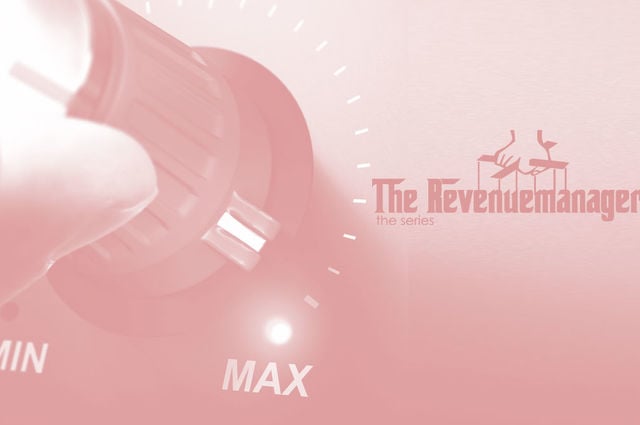Focus On Productivity: How COVID taught us to do more with less resources...
17 experts shared their view
According to the Global Travel Staffing Barometer, due to the pandemic, travel companies around the world have laid off or furloughed over half a million people, and the number of LinkedIn users in the hospitality space applying the #opentowork hashtag to their profiles grows day after day. Most hotels are struggling to run operations with skeleton crews only, yet they do not have any real alternative. In some countries, in fact, the financial help coming from governments is close to zero, so the only option for these hotels is to get rid of "superfluous" staff and try to run their businesses with a fraction of their employees. This forced most properties to heavily concentrate and focus on productivity, trying to get the best out of dire circumstances. How will this situation affect hotels? Can a global reset actually be a good thing, after all, forcing the industry to get more done with fewer resources? Or will this trend damage the guest experience in the long run?
As the global hospitality industry begins to see pockets of recovery around the world, revenue and distribution managers are under pressure to hit the ground running to capture demand and optimize returns. Getting revenue and distribution strategies right will determine whether a hotel can bounce back or not.
Yet, beleaguered hospitality teams have a steep hill to climb. Pre-Covid many revenues and distribution managers would have told you that they were already overstretched. Fast forward to today and those who have managed to retain their jobs amid sweeping cuts are now likely to find themselves responsible for a greater number of properties with even fewer resources than in 2019.
Traditional approaches won't cut it in this new, leaner world. Hotels need to be willing to transform both their approach to revenue and distribution management and the tools they use to enable their teams to do more with less.
How can revenue and distribution managers deliver in the new normal?
Hotels have been forced to cut their workforce to the bone in order to survive. We have seen almost every one of our clients undergo a reorganization with the result being fewer revenue managers per property and throughout the chain. Many brands have combined their hotels in various ways to align them by location, tiers, or hotels that share similarities to achieve rationalizations.
As hotels 'plus up' to combine their resources, revenue and distribution managers either have fewer colleagues to support them at their individual property or are responsible for an increasing portfolio of destinations. Likewise, for the cluster managers, the pressure is on to deliver despite having fewer resources to draw on.
At such a critical time for the hospitality industry, new ways of working are needed that will give managers the time and information they need to make the right decision to safeguard their properties' future. While hotels are no stranger to managing their data digitally, most have separate systems for each task and often each property making it virtually impossible to gain a complete overview, identify risk or take decisive action.
New cloud-based solutions, designed specifically for hotels are providing real-time chain to individual property level insights. These, combined with cultural changes that support a more collaborative approach will enable teams to become more productive with the resources that they have.
Hotels must embrace digitalization
The rise of intelligent data platforms built from the ground up specifically for the hospitality industry holds the key to freeing revenue and distribution managers from hours of trawling and combining reports to get a grasp on the numbers and identify trends. With highly visualized dashboards, instant health scores benchmark performance, actions can easily be identified.
Recent years have seen dedicated hospitality platforms launched that allow managers to not only track performance by individual property but by cluster and region too. Ensuring everyone from on-the-ground employees to c-suite executives is aligned around a single source of verified data.
Better collaboration
The only way hotels will truly be able to become more productive with fewer resources is by empowering their teams to work together to drive performance. Breaking down silos must be a top priority for every organization.
Many of our clients are seeing the transformative benefits of fostering a culture of collaboration between their distribution, marketing, and revenue teams, for example. By ensuring each team can see and understand what the other is doing and how their actions impact the wider teams, savings can be found. Aligning the entire organization from the c-suite to individual property around a hub of intelligent insights with easy-to-use dashboards, more effective decisions can be made.
Faster, decision-making
Traditionally, the hospitality industry is known for its slow and steady approach. Relying on processes that have little changes of decades in the new normal teams need to be agile and act fast to capitalize on opportunities. Having a total overview and access to real-time data is central to this.
Distribution, competition, and business intelligence tools in the cloud give teams access to the information they need in an instant, and with an ability to slice and dice the data as required, the right decisions can be made at the right time.
Automated processes
Each month revenue and distribution managers waste days of their time verifying data and compiling and merging financial reports. A recent report by HSMAI found that revenue managers spend less than half their time on a revenue-generating activity. Business intelligence tools, which combine the latest machine learning and artificial intelligence are shrinking that time to a few clicks or less. Automating pick-up reports, for example, frees up time to focus on strategic issues. In addition, since they are cloud-enabled, the solutions can be easily implemented throughout the cluster or chain and any software updates are undertaken automatically.
Investing time where it matters most
Wasted time is the greatest threat to productivity. With access to clear, actionable data, revenue managers can clearly see which hotels, clusters, and chains are performing well and which require attention – enabling them to pick their battle and invest their time for optimal results.
There's no going back for the hospitality industry. Lean, productive teams are here to stay. While that can feel daunting right now, especially for a workforce that has already been through so much, this should be seen as an opportunity to transform. Those hotel chains that are ready to embrace a new collaborative culture that leverage the benefits of digital transformation are set to unlock their teams' potential and gain a competitive advantage.



